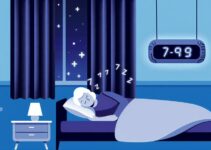If you want to boost your testosterone levels, improving your sleep habits can be a game-changer. Not only does adequate sleep play a crucial role in your overall well-being, but it also has a direct impact on testosterone production. But how exactly does sleep affect testosterone? And what are the specific sleep habits you need to focus on to optimize your testosterone levels? By understanding the relationship between sleep and testosterone and implementing a few key strategies, you can potentially enhance your hormone levels and overall health.
Key Takeaways
- Inadequate sleep can lead to a decrease in testosterone levels.
- Recommended sleep duration for adults is 7-9 hours per night.
- Factors like room temperature, noise levels, and light exposure affect hormone regulation during sleep.
- Consistent sleep schedule helps regulate hormone production and release.
Importance of Sleep for Testosterone
How does sleep directly impact your testosterone levels and what are the key factors to consider for optimizing your sleep to support healthy testosterone production? Sleep quality plays a crucial role in maintaining hormonal balance, including testosterone levels. Research indicates that inadequate or poor-quality sleep can lead to a decrease in testosterone levels. According to a study published in the Journal of the American Medical Association, young healthy men who underwent one week of sleep restriction (5 hours per night) experienced a 10-15% reduction in their daytime testosterone levels. Additionally, disrupted sleep patterns can lead to an imbalance in cortisol levels, which further affects testosterone production. It's essential to prioritize sleep hygiene, ensuring a consistent sleep schedule, creating a comfortable sleep environment, and minimizing exposure to electronic devices before bedtime. Addressing sleep apnea or other sleep disorders is also crucial for optimizing sleep quality and, in turn, supporting healthy testosterone levels. By prioritizing quality sleep, you can positively impact your hormonal balance and support optimal testosterone production.
Optimal Sleep Duration for Testosterone
Optimizing your sleep duration is crucial for maintaining healthy testosterone levels, as research has shown a direct correlation between inadequate sleep and reduced daytime testosterone levels. The recommended sleep duration for adults is 7-9 hours per night. A study published in the Journal of the American Medical Association found that men who slept for 4 hours had significantly lower levels of testosterone compared to those who slept for 8 hours. Furthermore, another study in the Journal of the American Geriatrics Society revealed that men who reported poor sleep had lower testosterone levels.
It's important to note that both insufficient and excessive sleep can negatively impact testosterone levels. Sleeping too little can lead to a decrease in testosterone production, while sleeping too much may also have adverse effects on hormone levels. Therefore, it's essential to aim for the recommended 7-9 hours of sleep each night to support optimal testosterone levels. Remember, achieving the right amount of quality sleep is a critical factor in maintaining healthy testosterone levels.
Sleep Environment and Testosterone Production
Creating an optimal sleep environment can positively impact testosterone production, as research suggests that factors such as room temperature, noise levels, and light exposure play a role in regulating hormone levels during sleep. Optimal temperature for sleep is typically between 60-67 degrees Fahrenheit, as this range supports the body's natural temperature drop during sleep, which is essential for quality rest. Additionally, lighting for sleep is crucial; exposure to bright lights, especially blue light emitted by electronic devices, can disrupt the body's natural sleep-wake cycle and suppress melatonin production, thereby affecting sleep quality and potentially testosterone levels. When it comes to sleep quality, the choice of mattress plays a significant role. A comfortable and supportive mattress can promote better sleep posture and reduce discomfort, thus contributing to improved sleep quality. Your sleep environment also includes minimizing noise disturbances, as excessive noise can disrupt sleep and lead to hormonal imbalances. By optimizing your sleep environment with these considerations in mind, you can potentially enhance testosterone production and overall well-being.
Sleep Hygiene Practices for Testosterone
Improving your sleep hygiene can significantly impact testosterone production and overall hormonal balance. To enhance your sleep hygiene and improve hormone balance, consider the following practices:
| Sleep Hygiene Practices | Description | Benefits |
|---|---|---|
| Consistent Sleep Schedule | Stick to a regular sleep-wake cycle, even on weekends. | Regulates hormone production and release. |
| Optimal Sleep Environment | Create a comfortable, dark, and quiet sleep space. | Enhances melatonin production for better sleep and hormone balance. |
| Limit Screen Time Before Bed | Avoid electronic devices at least an hour before bedtime. | Reduces exposure to blue light, promoting better sleep and hormonal regulation. |
Frequently Asked Questions
Can Certain Sleep Positions or Sleeping on a Specific Type of Mattress Affect Testosterone Levels?
Sleep positions and mattress types can impact testosterone levels. Certain sleep positions may improve hormone regulation. Choosing a mattress that provides proper support can also positively affect testosterone production. Consider these factors for better sleep and hormone balance.
Is There a Specific Time of Night That Is Best for Testosterone Production During Sleep?
During the sleep cycle, hormone production, including testosterone, peaks during the early morning hours, around 4-8 am. This natural rhythm is influenced by your body's internal clock and can be optimized with healthy sleep habits.
Can Excessive Screen Time Before Bed Impact Testosterone Levels?
Excessive screen time before bed can negatively impact your testosterone levels. Blue light from screens can disrupt melatonin production, leading to sleep disturbances and reduced testosterone. Limiting screen time at night can help maintain healthy testosterone levels.
How Does Alcohol Consumption Before Bed Affect Testosterone Production During Sleep?
Drinking alcohol before bed can disrupt your sleep, impacting testosterone production. Research shows that even moderate alcohol consumption can reduce sleep quality and decrease testosterone levels during the night, affecting overall hormone balance.
Are There Any Specific Sleep Supplements or Medications That Can Boost Testosterone Levels While Sleeping?
You may consider sleep supplement options or medications for a testosterone boost during sleep, but consult with a healthcare professional first. Melatonin, magnesium, and ashwagandha are popular sleep supplements, while testosterone replacement therapy is a medication option.
Conclusion
In conclusion, maximizing your testosterone levels through better sleep habits is crucial for overall health and well-being. By ensuring you get the optimal amount of sleep, creating a conducive sleep environment, and practicing good sleep hygiene, you can enhance your testosterone production. Remember, quality sleep is the key to unlocking your body's potential. So, make sure to prioritize your sleep to reap the benefits of increased testosterone levels and improved overall health. It's time to let your body recharge and thrive.



